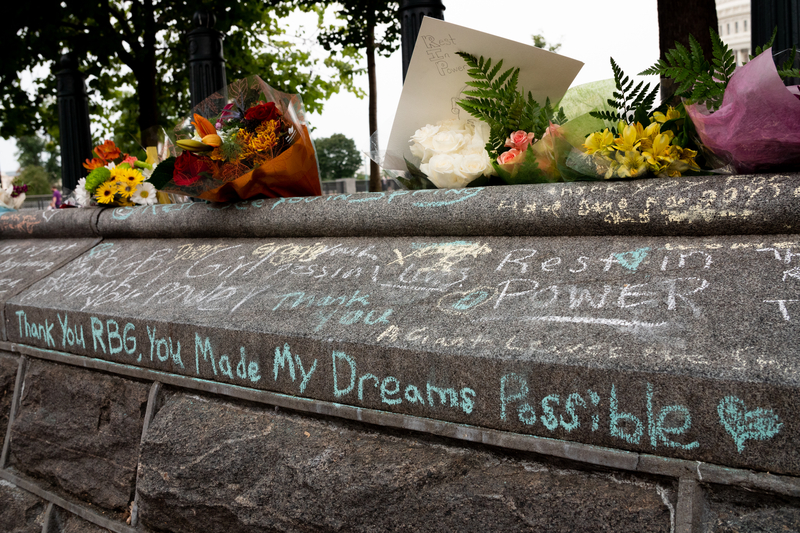Notorious

I’m just a plainspoken Colorado criminal defense lawyer, but the way I see it…
Clearly, a world without Ruth Bader Ginsburg, where the graceless man who called her an absolute disgrace to the Supreme Court remains in it, is an unfair world.
Unfair too is that this freakishly small while morbidly obese man may nominate as her replacement someone as unfit for her job as he is for his. (In my grief at her loss I too am unfair, for while it is true that his last pick for the court was a former beer-swilling sexual predator and latter-day beer-swilling pretentiously indignant red-faced liar — a man much like himself, but for the beer — his first pick was, if only by accident, a decent and well-qualified jurist.)
R.B.G., like M.L.K., had a dream: his that some day black people would enjoy equal citizenship with white people; hers that women would enjoy equal citizenship with men. He died too soon. She died after a long life, yet also too soon. The gains she devoted her career to achieving for women face hot and imminent attack from lordly men and subservient women who believe that Eve was created only to be helpmate to Adam.
To her that was nonsense. Asked when there would be enough women on the Supreme Court, she would say, “When there are nine.”
The touchstone of her body of legal work, both as a lawyer arguing before the Court and as a Justice on its bench, was the equal-protection clause of the Fourteenth Amendment, which provides that “nor shall any state…deny to any person…the equal protection of the laws.”
Equal protection. She resented that the male establishment thought that demanding equal protection was somehow seeking favor for women. She frequently quoted (including while arguing before the Court) her predecessor in the fight, famed abolitionist Sarah Grimké, who wrote in 1837, “I ask no favors for my sex. All I ask of our brethren, is that they take their feet off our necks.”
She worked not only to protect women’s rights, but also to uncover the rights of women that weren’t in the consciousness of men as even being rights. Not even fifty years ago, only men were thought fit to execute estates. Ginsburg’s brief in a case challenging that preference led the Court to rule, for the first time, that such discrimination, on the basis of sex, violates the equal-protection clause.
As Justice Ginsburg, she wrote the majority opinion that decided the Virginia Military Institute’s discrimination against female students likewise violated equal protection.
There were so many more. So much more to this champion of women’s rights, of human rights.
Ten years ago, Ruth Bader Ginsburg’s husband Marty wrote a last love letter to her as he lay dying. “What a treat it has been,” he wrote, “to watch you progress to the very top of the legal world.”
What a treat it has been, indeed.